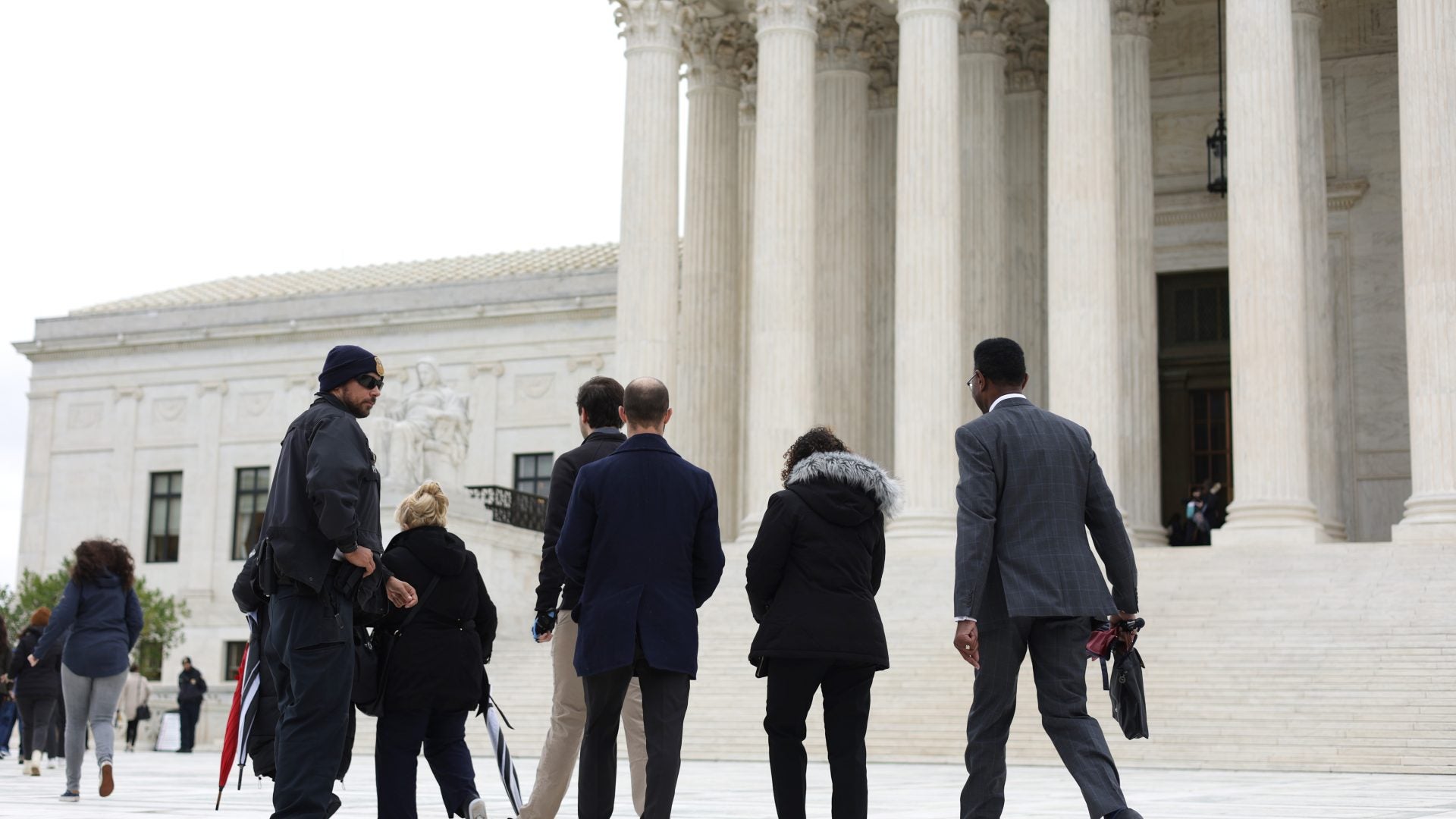
With a 6-3 ruling, the U.S. Supreme Court has ruled that Galveston County in Texas can use a map in the 2024 election that lower courts said was in violation of the Voting Rights Act.
The crux of this case is with the Galveston County Commissioners Court, which is composed “of four county commissioners elected from single-member precincts and one county executive, called a judge, elected by the entire county,” the Washington Post reports.
Since 1991, one of the “precincts had a majority-minority population, with Black and Latino residents accounting for 58 percent of the population of that precinct.” But in 2021, the commissioners imposed a new “map for county commissioner elections that did not include a district” where Blacks and Latinos would comprise a majority.
Two lower courts said that this map “was racially gerrymandered.” In October, U.S. District Judge Jeffrey Brown, a Trump appointee even called the map “racially discriminatory and ordered a redraw.” A 5th Circuit Court of Appeals panel of three-judges also unanimously affirmed Judge Brown’s decision.
But the 5th Circuit took the case en banc, which is where all the judges on the court hear a case. The court then ruled that because elections were so close, there was no time to get a new map. So, the map with no majority-minority district was allowed to stand.
“Three Black Galveston residents asked the Supreme Court to intervene, but the conservative majority decided not to,” according to Newsweek.
Given that this was an emergency application, the high court conservative majority did not have to provide a rationale for their decision in Petteway v. Galveston County.
In her dissent, Justice Elena Kagan wrote “concededly lawful…and nearly identical to the maps that have governed the election of Galveston County’s commissioners for decades.”
“In imposing a different map, acknowledged to violate current law…the court of appeals went far beyond its proper authority,” wrote Kagan.
Both Justice Sonia Sotomayor and Justice Ketanji Brown Jackson, the two other liberal members of the court, joined Kagan in her dissent.
Attorney for the plaintiffs Valencia Richardson said, “The Supreme Court decision this afternoon means that, unfortunately, Galveston voters will have to suffer under a discriminatory map for the 2024 elections.”
“Precinct 3, which was dismantled by Map 2, will remain dismantled in 2024. Galveston County Black and Latino voters no longer have a commissioners court district in which they have the opportunity to elect the candidates of their choice,” continued Richardson.
And this isn’t just a Texas issue—it has larger implications because it signals that our country has ventured down a path toward the erosion of the Voting Rights Act.